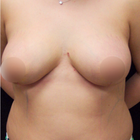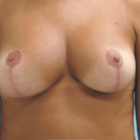Breast Reduction in Cape Town
Search and Compare the Best Clinics and Doctors at the Lowest Prices for Breast Reduction in Cape Town

Find the best clinics for Breast Reduction in Cape Town
With Medijump you can browse 6 facilities offering Breast Reduction procedures in Cape Town. The cheapest price available is $4,668 in Cape Town
Breast Reduction in South Africa
Price: $ 4,668
Breast Reduction in Cape Town
Price: $ 4,668
Breast Reduction in Johannesburg
Price: $ 6,141
Czech Republic offers the best prices Worldwide
Price: $ 89
From 18 verified reviews
Juliettash Stadler, 05 May 2020
My Son was admitted with a very rare autoimmune illness in April this year. The care he was given was superb Prof Dheda, Prof Louw and their team of specialists covered every possibility , diagnosed efficiently and treated effectively. There was time taken to explain everything. The Hospital Matron made allowances for me to spend as much as possible time with my son and also allowed for frequent visits from close family. Mr Daniel Mathew the Hospital General manager is very approachable and interested . The staff was friendly and helpful. Basically every one from reception through admin to ICU was friendly and helpful. I Highly recommend this hospital
From 36 verified reviews
Kim Adams, 30 March 2020
Overall I had a good experience.
Dr Dawid Potgieter, located in Syfred Douglas St, Cape Town, South Africa offers patients Breast Reduction procedures among its total of 90 available procedures, across 1 different specialties. Currently, there's no pricing information for Breast Reduction procedures at Dr Dawid Potgieter, as all prices are available on request only, whilst the national average price is approximately kr36,701. All procedures and treatments are undertaken by the lead specialist at the Hospital, and they have multiple recognized accreditations, including: HPCSA - Health Professions Council of South AfricaDepartment of Health, Western CapeFCS(SA) - Fellowship of the College of Surgeons of South Africa
From 16 verified reviews
Rebecca O'Connor, 23 September 2020
Dr. Gideon Maresky is amazing. I underwent otoplasty and rhinoplasty procedures and couldn't have asked for a better experience. Everything ran very smoothly.
Dr Susan F Johnson, located in Syfred Douglas St, Cape Town, South Africa offers patients Breast Reduction procedures among its total of 20 available procedures, across 1 different specialties. Currently, there's no pricing information for Breast Reduction procedures at Dr Susan F Johnson, as all prices are available on request only, whilst the national average price is approximately kr36,701. All procedures and treatments are undertaken by just a small team of specialists, with 2 in total at the Hospital, and they are accredited by HPCSA - Health Professions Council of South Africa
Dr. Petrus van Deventer, located in Syfred Douglas St, Cape Town, South Africa offers patients Breast Reduction procedures among its total of 6 available procedures, across 1 different specialties. Currently, there's no pricing information for Breast Reduction procedures at Dr. Petrus van Deventer, as all prices are available on request only, whilst the national average price is approximately kr36,701. All procedures and treatments are undertaken by the lead specialist at the Hospital, and they have multiple recognized accreditations, including: HPCSA - Health Professions Council of South AfricaAPRSSA - Association of Plastic and Reconstructive Surgeons of Southern Africa
- Home
- South Africa
- Cape Town
Compare Before & After Photos of _procedure_photos.phpBreast Reduction


Front view


Front view


Front view


Front view


Front view


Front view
WHY US?
At Medijump, we're making medical easy. You can search, compare, discuss, and book your medical all in one place. We open the door to the best medical providers worldwide, saving you time and energy along the way, and it's all for FREE, no hidden fees, and no price markups guaranteed. So what are you waiting for?

Free

Best Price

Widest Selection

Risk-Free
What you need to know about Breast Reduction in Cape Town

Female Breast reduction (reduction mammoplasty), also known as Reduction Mammoplasty, is a surgical operation to reduce the weight and volume of the breasts. During the procedure, fat, glandular tissue and skin are removed from the breasts, which are then reshaped, and the nipples repositioned. The nipple-areola complex (NAC) is preserved to ensure that lactational ability is not affected. The mammoplasty is performed for three reasons, aesthetic, physical and psychological.
Breast size is determined by genes, hormones, body frame, and weight. For most women, breast size is proportionate to the body, but for some, the breasts are particularly large. Large breasts can cause physical symptoms such as discomfort, backache, neck pain, and skin irritations. Oversized breasts can also cause psychological distress. Common complaints from women with large breasts include not being able to wear fashionable clothes and finding it difficult to take part in active sports. In these cases, breast reduction surgery can be an option.
What does a Breast Reduction Procedure Involve?
The procedure begins with making you lay in the supine position. Anesthesia is given to avoid pain during surgery. The area is sterilized and an incision is given around the areola and down your breasts. The flap of skin containing areola and nipple is displaced and excessive fat, breast tissue, and skin are removed to lessen the size of your mammary gland. In the next step, breasts are reshaped, areola and nipples are again placed over the reduced breasts and stitches are given.
In some cases, when a large amount of tissue and fat is removed, skin flap with areola and nipples is detached and repositioned at a higher level according to the new size. Drainage tubes are inserted into the breasts to drain away blood and fluid. Bandages are applied over the stitched incisions. You are asked to wear a surgical bra. It is tried to make both breasts look alike; however, small variations in the size of breasts and areola can be there.
What about Breast Augmentation?
Breast augmentation might also be performed on women who suffer from a condition called macromastia. It can be due to various reasons such as hypertrophy of adipose tissue in the breast, after menopause, postpartum, genetics, etc. In this condition, your breasts are sagging, and their size is bigger in proportion to your body, causing a number of problems. A woman affected by macromastia suffers from pain in the head, neck, shoulders, and back. Blood circulation and respiration are also disturbed. Men who experience gynecomastia can also opt for breast reduction surgery.
Another case where breast reduction can be an option is when breasts grow particularly large because of the use of hormone replacement therapy (HRT).
What is the cost of Breast Reduction in Cape Town?
It's crucial to bear in mind that Breast Reduction is a substantial procedure. Consequently, contemplating the expense of this process within Cape Town is critical. While the total cost might fluctuate based on individual circumstances and the intricacy of the operation, it typically includes the cost of anesthesia, hospital expenses, surgical equipment, and the surgeon's charge. Having a comprehensive understanding of the total price is critical to make an educated decision and align your financial planning accordingly.
Numerous factors could influence the expense of a Breast Reduction in Cape Town. This includes the skill level of the surgeon, the complexity of the procedure, the kind of anesthesia applied, and postoperative care services. Thorough research and careful financial planning should enable you to handle the costs associated with the process. Also, if needed, you could consider alternatives for financial aid or insurance cover.
How Long Should I Stay in Cape Town for a Breast Reduction Procedure?
Surgery can last between 2 to 5 hours and sometimes even longer depending upon the size of your breasts and amount of fat and tissue that is to be removed - an overnight stay as an inpatient is required. After your condition is monitored, you are discharged from the hospital. You have to stay for at least 14 days in Cape Town for follow up procedures. Regular check-ups are advised in the first few days after surgery. Oral pain killers are given to deal with pain and swelling. Stitches are removed in 2 weeks after which you are allowed to go home. In case you notice any redness, secretion, abnormal pain or inflammation, consult your doctor.
What's the Recovery Time for Breast Reduction Procedures in Cape Town?
It takes several months for recovery from a breast reduction surgery. You cannot go to work for 1 to 2 weeks after the surgery. There will be pain and swelling in the initial days for which you are given some medicines. Avoid intensive physical activity for at least 1 month. You are asked not to wear underwire bras for a few months. You are allowed to wear a normal bra after 4 weeks. It takes 6 to 8 weeks for the swelling and tenderness to go away. Even after complete recovery, scars do not disappear. However, they are faded and become less visible. Changes continue to take place for a year after going through this surgery.
What sort of Aftercare is Required for Breast Reduction Procedures in Cape Town?
You should consider the following points to take care of yourself after surgery:
- Do come for regular check-ups.
- Take your medicines regularly, as and when prescribed by your physician.
- Make sure that someone lives with you to look after you.
- Follow a healthy diet plan for a better recovery.
- Do not wear fancy, underwire bras in the early days. Wear surgical bra only.
- Wear loose clothes, tees, and shirts.
- Avoid excessive, unnecessary movement of your breasts.
- Do not take a bath in the first few days, a wet bandage can be the cause of infection.
- Do not ignore any kind of soreness, redness or abnormal secretions from your breasts. Visit your doctor immediately.
- Drink plenty of water. It is very effective for a quick recovery.
- Use icepacks to help you with swelling.
- Do not try to lift heavy objects because your movement is restricted due to stitches. It can open up your stitches before time.
- Do some stretching exercises when told by your physician.
What's the Success Rate of Breast Reduction Procedures in Cape Town?
Breast reduction mammoplasty is found to be successful in most of the cases. According to a survey, 80% of women are satisfied with the results of the surgery. This effectively reduces neck pain, back pain, headache, and shoulder pain, with your breasts no longer sagging and causing these problems. Respiratory and circulatory problems are also resolved. In case this surgery is not successful, it leaves prominent scars which can be subjected to hypertrophy. There might be less than the required amount of tissue and fat removal. Sometimes, more breast tissue is removed leaving your chest flat. A secondary breast reduction surgery is performed to cope with this.
For an in-depth and personal review of the pros and cons of Breast Reduction, including before and after shots, watch this video blog.
Are there Alternatives to Breast Reduction Procedures in Cape Town?
Following are some alternatives to reduce your breast size without going through a surgery:
- Weight Loss: losing weight can also be effective in the case of reducing breast size. Some exercises are there to help you decrease your size. Exercise removes excess adipose tissue making your breasts smaller.
- Liposuction: it is a less invasive method in which a small incision is given to insert a cannula and fat is sucked from it reducing breast size. There are least scarring and recovery is faster.
- Fitting bra: it is not a permanent method to reduce your breast size but a specialized fitting bra can be helpful in making your breasts look smaller. It is not a standard bra.
What Should You Expect Before and After the Procedure
Knowing what to expect before and during a Breast Reduction helps you prepare physically, intellectually, and emotionally for the experience. A comprehensive health examination is scheduled before the procedure. Along with preparing for the procedure by following the pre-surgery instructions supplied by your healthcare institution, this is also your chance to discuss your hopes and concerns with the surgeon. Your food routine, medication regimen, and lifestyle practises might need to change as a result of this preparation.
After the surgery, it's common to feel some soreness, inflammation, and sometimes even bruising. All of these symptoms can be treated with the right medication. It's important to unwind, refrain from strenuous activity for a few weeks, wear a bra with a specific purpose, and follow a specific wound care regimen.
What are Potential Risks of Breast Reduction?
The Breast Reduction, similar to any other surgical procedure, poses possible risks and complications such as infection, bleeding, altered sensation in the nipple or breast due to anesthesia, and difficulties in breastfeeding post-operation. It is imperative to have a detailed discussion about these potential issues with your healthcare professional at the consultation phase.
It's important to know that the probability of these risks occurring is minimal and can be reduced further by opting for a well-respected clinic and surgeon, following the pre-surgical instructions, and adhering to the aftercare routine provided.
Whilst the information presented here has been accurately sourced and verified by a medical professional for its accuracy, it is still advised to consult with your doctor before pursuing a medical treatment at one of the listed medical providers
No Time?
Tell us what you're looking for and we'll reachout to the top clinics all at once
Enquire Now

Popular Procedures in Cape Town
Prices Start From $85

Prices Start From $120

Prices Start From $692

Prices Start From $236

Recommended Medical Centers in Cape Town for Breast Reduction

- Interpreter services
- Translation service
- Religious facilities
- Medical records transfer
- Medical travel insurance
- Health insurance coordination
- TV in the room
- Safe in the room
- Phone in the room
- Private rooms for patients available

- Interpreter services
- Translation service
- Religious facilities
- Medical records transfer
- Medical travel insurance
- Health insurance coordination
- TV in the room
- Safe in the room
- Phone in the room
- Private rooms for patients available

- Interpreter services
- Translation service
- Religious facilities
- Medical records transfer
- Medical travel insurance
- Health insurance coordination
- TV in the room
- Safe in the room
- Phone in the room
- Private rooms for patients available

- Interpreter services
- Translation service
- Religious facilities
- Medical records transfer
- Medical travel insurance
- Health insurance coordination
- TV in the room
- Safe in the room
- Phone in the room
- Private rooms for patients available

- Interpreter services
- Translation service
- Religious facilities
- Medical records transfer
- Medical travel insurance
- Health insurance coordination
- TV in the room
- Safe in the room
- Phone in the room
- Private rooms for patients available

- Interpreter services
- Translation service
- Religious facilities
- Medical records transfer
- Medical travel insurance
- Health insurance coordination
- TV in the room
- Safe in the room
- Phone in the room
- Private rooms for patients available

- Interpreter services
- Translation service
- Religious facilities
- Medical records transfer
- Medical travel insurance
- Health insurance coordination
- TV in the room
- Safe in the room
- Phone in the room
- Private rooms for patients available

- Interpreter services
- Translation service
- Religious facilities
- Medical records transfer
- Medical travel insurance
- Health insurance coordination
- TV in the room
- Safe in the room
- Phone in the room
- Private rooms for patients available

- Interpreter services
- Translation service
- Religious facilities
- Medical records transfer
- Medical travel insurance
- Health insurance coordination
- TV in the room
- Safe in the room
- Phone in the room
- Private rooms for patients available

- Interpreter services
- Translation service
- Religious facilities
- Medical records transfer
- Medical travel insurance
- Health insurance coordination
- TV in the room
- Safe in the room
- Phone in the room
- Private rooms for patients available
Breast Reduction in and around Cape Town
About Cape Town
Cape Town is the legislative capital of South Africa and is also known as the Mother City. It is the oldest city in the country and home to the Parliament of South Africa and is a major destination for immigrants and expatriates, making it one of the most multicultural cities in the world. Located on the shore of Table Bay, the city is known for its harbor, natural setting, as well as famous attractions and many tourists, visit to enjoy Table Mountain and Cape Point.
Recently, tourists also come to the city for its medical tourism. Many groundbreaking procedures and medical research in South Africa, such as the world’s first penile transplant, have put Cape Town under the radar of medical tourists from all around the globe. Thanks to its world-class healthcare and world-renowned medical practitioners, more and more people now prefer Cape Town as their medical destination. The healthcare in the city is among the best on the African continent. Other reasons such as shorter waiting times for surgeries, state-of-the-art equipment, and affordable healthcare compared to Europe and the United States, and English-speaking doctors.
Popular Areas in Cape Town
Cape Town is a natural beauty that offers a wide range of things to do and see. From culture, food, art, to nature. Listed below are some of the more popular places in the city:
- Table Mountain is one of the New 7 Wonders of Nature and it is easy to see why. The iconic mountain makes an amazing backdrop to Cape Town. The level plateau is about 3 kilometers from side to side with remarkable cliffs on the edges. The peak offers an amazing view of the city. Tourists can choose to board the cable car or discover its beautiful nature by hiking.
- Cape of Good Hope is situated within the Table Mountain National Park. The area has a mix of bio-diversity and wonderful beauty that attracts thousands of tourists to visit. There are around 250 species of birds spotted in the area. Hiking and cycling through it is the best way to discover its true majesty. Tourists can picnic and birdwatch in isolated beaches.
- Kirstenbosch National Botanical Garden is one of the most incredible botanic gardens in the world. Nestled at the eastern foot of Table Mountain, it features a natural forest and fynbos flora and sprawls around 528 hectares. The garden displays a collection of diverse South African plants with seasonal festivals such as musical sunset concerts during summer and craft markets on the last Sunday of every month.
- Groot Constantia is the oldest wine-producing estate in South Africa, located in the suburb of Constantia. The estate consists of a museum, restaurants, tasting room, and cellars. The museum was built in Cape Dutch architecture style, further into the estate; tourists will find the free orientation center which provides an overview of Groot Constantia history. Tourists can also tour the original wine cellar, have a wine tasting, or a wine and chocolate pairing.
- Boulders Penguin Colony is located in Boulder Beach on the outskirts of Simon’s Town. The beach boasts fine white sand with pristine waters and endangered African penguin colonies. Tourists can set up camp, see the penguins up close, and even swim along with the magnificent aquatic birds. Observing the penguins socializing and playing in the waves is a perfect way to enjoy your travel in Cape Town.
Weather and Climate in Cape Town
Cape Town enjoys a warm Mediterranean climate. The summer is dry and warm, lasting from early December to March. The average maximum temperature during this season is around 26 °C, and the minimum is 16 °C. The Berg Wind that arrives from February to early March can make the city uncomfortably hot for a couple of weeks.
The winter starts in June and ends in August and the season is characterized by mild and wet weather. The city also experiences strong north-westerly winds during this season. The average temperature ranges between 8.5 °C at the lowest and 18 °C at the highest.
Getting Around in Cape Town
The primary airport that serves Cape Town is the Cape Town International Airport and it is the second busiest airport in South Africa and the fifth busiest in Africa. The airport serves direct domestic flights to major cities and several small centers in the country. It also connects the country with major cities in Africa, Europe, the Middle East, and Asia. It is the hub for South African Express as well as budget airlines such as Mango and FlySafair.
There are several types of taxis: the metered taxis, Rikkis Taxis, and minibus taxis. The metered taxis can be a little expensive but are usually comfortable. Tourists can order one via a phone call or from one of the city’s official taxi stands. Tourists should always choose reputable taxi companies such as Marine Taxi, Unicab, Excite, and SA Cab.
Rikkis Taxis are painted yellow and very popular and these taxis run on a fixed fare rather than metered, so they are a little more affordable than metered taxis and a good option if you are traveling on longer journeys. Other than the Rikkis Taxis, tourists can choose the minibus taxis which are perfect for adventurous foreign travelers. The minibus taxis can be found practically everywhere and are very cheap, however, you will need to know exactly where your destination is and tell the driver when to stop. Another travel option is the MyCiTi bus, a modernized and effective bus system.
Tourist Visas in Cape Town
There are more than 60 countries listed in the visa exemption agreements, which means the citizens of these countries can stay in South Africa for up to 90 days. Other countries not listed must obtain a valid visa to enter the country. A Medical Treatment Visa is available for medical tourists. Note that all visitors must hold a passport valid for at least 30 days after the expiration of their intended visit.
Additional Information
- Local Currency: South African Rand (ZAR) is the official currency and 1 USD converts to 14 ZAR.
- Money & Payments: Tourists can find ATMs almost everywhere around the city, but you should avoid ATMs in secluded places, especially at night. Credit cards are accepted in established restaurants, hotels, and shops. It is always better to carry some cash because smaller food places are cash-only. Tipping is expected here.
- Local Language: The most common languages in the city are English, Afrikaans, and Xhosa with Afrikaans as the most widely spoken home language.
- Local Culture and Religion: The population follows Christianity, Islam, Judaism, and several other religions.
- Public Holidays: There are 12 official public holidays in Cape Town, including New Year’s Day, Freedom Day, and Christmas.
Popular Searches
- Plastic Surgery in Thailand
- Dental Implants in Thailand
- Hair Transplant in Thailand
- Breast Augmentation Thailand
- Gastric Sleeve in Thailand
- Gender Reassignment Surgery in Thailand
- Laser Hair Removal in Bangkok
- Botox in Bangkok
- Dermatology in Bangkok
- Breast Augmentation in Bangkok
- Coolsculpting in Bangkok
- Veneers in Turkey
- Hair Transplant in Turkey
- Rhinoplasty in Turkey
- Stem Cell Therapy in Mexico
- Rhinoplasty in Mexico
- Liposuction in Mexico
- Coolsculpting in Tijuana
- Rhinoplasty in Korea
- Scar Removal in Korea
- Gastric Sleeve in Turkey
- Bone Marrow Transplant in India
- Invisalign in Malaysia
- Plastic Surgery in the Dominican Republic
- Tummy Tuck in the Dominican Republic
- Plastic and Cosmetic Surgery in Poland
- Rhinoplasty in Poland
- Hair Implant in Poland
- Dental Implants in Poland
- IVF in Turkey




